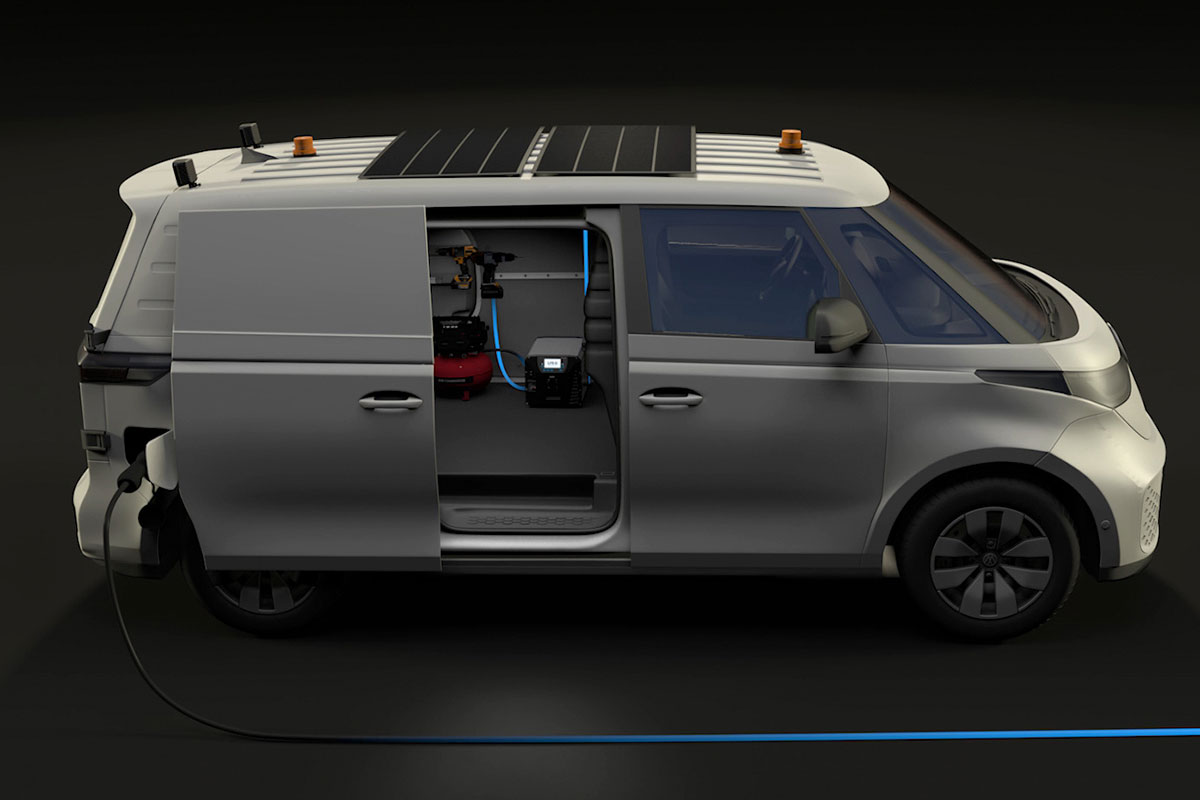National Grid Electricity Distribution (NGED) is looking to cut emissions from its operational fleet by investing £1.5 million in Clayton Power’s Lithium Power Supply (LPS).
While many fleet managers around the UK will be looking at investing in electric vehicles as part of their mission to cut emissions, NGED also has to consider its own unique needs. Many of the company’s diesel vehicles provide a dual function – they’re not simply transport, but also a power hub for charging tools and powering other equipment.
That means when it came to looking at a way to reduce its fleet emissions, NGED looked at how it could transition away from traditional inverters and diesel-powered transport, and yet still provide the power needed to charge up drills, grinders, electric heaters, and even lighting.
The company settled on Clayton Power’s LPS, which will now be fitted as standard on NGED’s new electric vehicles – and it’s a transition that could have a real impact on the company’s operational fleet.
The benefits of an LPS
NGED first trialled the LPS in a number of vehicles, revealing it had already saved the business £110,000 by powering tools, lighting, heating, and essential equipment without the need for engine idling. Once the LPS is charged – either during driving or from a mains supply – it can supply a reliable source of power to ensure engineers can carry out their work in remote locations.
The company has already confirmed that the system is being rolled out across its fleet of Nissan Townstar, Skoda Enyaq and Isuzu D-Max vehicles.
Jane Nicholson, NGED’s Fleet Technical Specialist, noted, “The Clayton Power LPS system will help our engineering teams working in remote locations by giving them a reliable power source whenever they need it.
“As well as running auxiliary lighting systems, the LPS can power an electric heater which is vitally important for keeping jointing compounds and other materials at the required temperature.
“Overall, having the LPS supports our increasing shift to using EVs and reducing our emissions and environmental impact, while also improving working conditions for our employees and customer service.”
Karl Jones, Clayton Power’s Head of UK Sales, added, “We’ve worked closely with NGED to deliver an innovative mobile power solution that meets the needs of their engineers, while being more energy efficient and greener.
“The LPS is proven technology that will boost their ability to work without compromising operational effectiveness and we’re delighted to see NGED adopt it to help achieve their regulatory goals.”
Technician Scott Hartland, based in Somerset, has been using the LPS to charge tools such as drills and grinders, as well as equipment for network testing. Reflecting on his experience with the system, he commented, “I can also charge sensitive equipment, like laptops and phones, without having to run the van. Another benefit is I can provide small power supplies to customers in need, such as for battery-powered stair lifts, chairs, oxygen monitors and things they might need in an emergency.”

